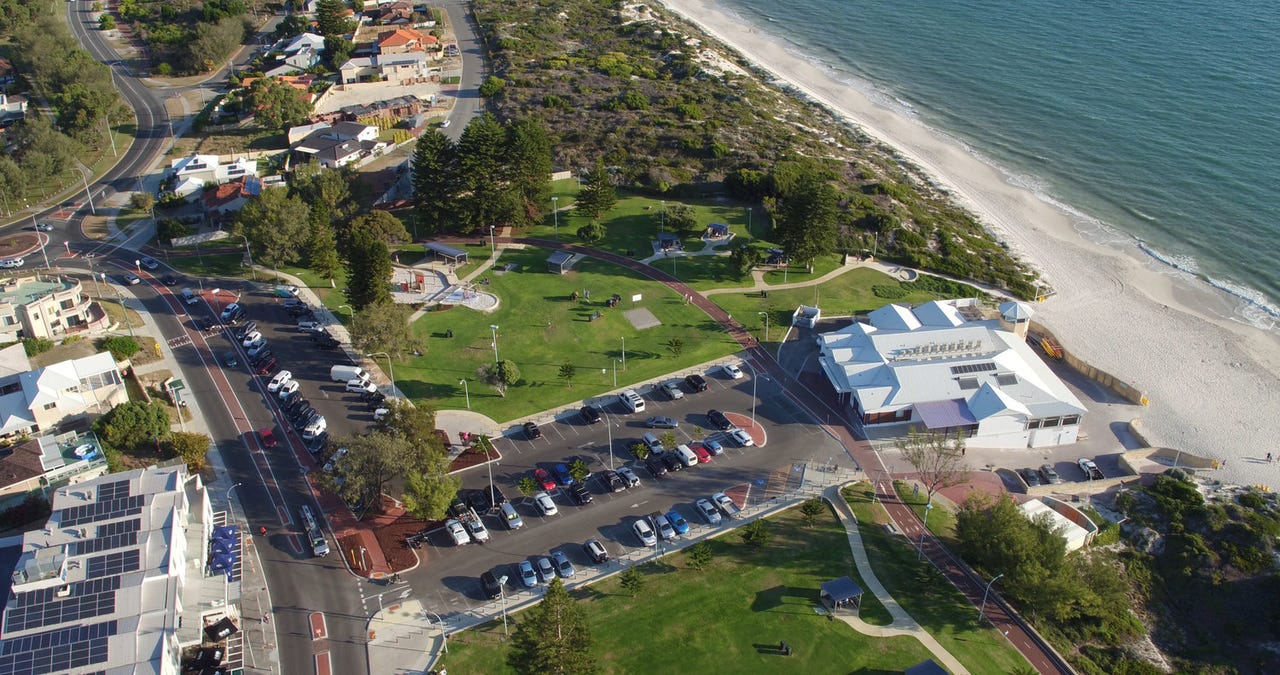Telstra announces smart city plans for Western Australia


Telstra has announced that it will trial and deploy a series of smart city Internet of Things (IoT) applications throughout a beachside park in Perth, Western Australia, under a partnership with the city of Joondalup.
The solutions will include environmental sensors that monitor temperature, humidity, pollution, light, and noise levels in real time; 32 smart bins fitted with sensors to notify the local council of when they need to be emptied; and a smart car park connected to Telstra's mobile network, allowing the council to see how many parking spaces are remaining and redirect traffic accordingly.
The council said it would use these three solutions, alongside a dashboard providing real-time analytics, to improve local governance efficiency, obtain information on which areas of the park are being used the most, and reduce traffic.
According to Joondalup Mayor Troy Pickard, the future of government will rely on such digitisation of services.
"With digital transformation set to play a key role in government services and operational delivery in the future, it is imperative that we reassess our business models and shift towards a more mobile and agile way of doing business," Pickard said, adding that it is the intent of Joondalup to become an "innovative digital hub".
Telstra added that in future, it could connect the roads, footpaths, and beach with similar sensors.
"We see potential for data-driven insights, made possible through technology to enable councils around Australia to manage their towns and cities more efficiently and strive for a better way of living for the community," said Oliver Camplin-Warner, executive director of Telstra's Government and Not-For-Profit arm.
Telstra's smart city announcement with Joondalup follows Nokia earlier this year telling ZDNet that more emphasis needs to be put on developing an overarching smart cities framework and strategy rather than on small projects such as smart bins and smart parking.
While the Australian government has announced its intention to build smart cities, there are "major gaps" in how it is going about doing so; cities are currently not equipped for the digital future and are being left to solve the problem by themselves, Nokia Oceania CTO Warren Lemmens told ZDNet.
"The risk at the moment is that that discussion around smart parking and smart waste bins becomes the basis on which we evolve cities nationally, and misses the point that really the future of cities is vested in cities having 360-degree visibility of their total operation so that they can form relationships with people who use the city, the businesses that are in the city," Lemmens told ZDNet.
Latest Australian news
"A digital fabric of a city is essential for the future of the city, as opposed to just a series of incidental projects."
Instead, Nokia suggested a state and territory government-level approach, working in conjunction with an overarching federal government program so that cities can concentrate on their specific needs.
Another part of Telstra's IoT strategy, meanwhile, is seeing it deploy a Cat M1 IoT network across the country, with trials under way in Melbourne and Tasmania in partnership with Ericsson, Sierra Wireless, Altair, and Bosch.
One of the trials has seen Telstra and Ericsson collect data from sensors at Pooley Wines in regional Tasmania, including leaf wetness, soil moisture and temperature, rainfall, solar radiation, and wind speed and direction, with the sensors connected to Telstra's 4G Cat M1 network using a Sierra Wireless AirPrime embedded module on Altair's Cat M1 chipset.
Telstra's focus on IoT also saw it launch a new business labelled Telstra Labs, which combines all of its innovation, technology development, and IoT research and development, as well as the nation's first public open IoT lab.
The new open IoT lab, situated in Telstra's Melbourne headquarters, provides a space for students, startups, and businesses to use controlled Cat-M1 and NB-IoT radio networks to create, test, and prototype their IoT solutions. It will provide researchers with electronic testing equipment, hardware, and diagnostic tools in order to assist them in developing prototype IoT sensors, hardware, and technology.
The telecommunications giant last year similarly unveiled its Smart Home offerings, in November launching its first swathe of Smart Home products and pricing packages including smart power plugs, cameras, lightbulbs, motion sensors, a door lock, and a thermostat.